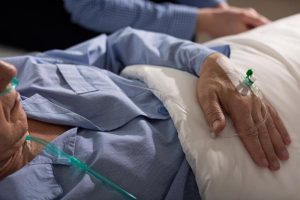- Home
- Editorial
- News
- Practice Guidelines
- Anesthesiology Guidelines
- Cancer Guidelines
- Cardiac Sciences Guidelines
- Critical Care Guidelines
- Dentistry Guidelines
- Dermatology Guidelines
- Diabetes and Endo Guidelines
- Diagnostics Guidelines
- ENT Guidelines
- Featured Practice Guidelines
- Gastroenterology Guidelines
- Geriatrics Guidelines
- Medicine Guidelines
- Nephrology Guidelines
- Neurosciences Guidelines
- Obs and Gynae Guidelines
- Ophthalmology Guidelines
- Orthopaedics Guidelines
- Paediatrics Guidelines
- Psychiatry Guidelines
- Pulmonology Guidelines
- Radiology Guidelines
- Surgery Guidelines
- Urology Guidelines
European Medicines Agency approves Angiotensin II acetate for raising BP in Septic Shock

Giapreza should be prescribed by physicians in the treatment of septic shock (by raising blood pressure) and used in an acute and hospital setting, recommends the Committee for Medicinal Products for Human Use (CHMP), European Medicines Agency (EMA) in a press release.
Septic shock is a potentially fatal medical condition that occurs when sepsis, which is organ injury or damage in response to infection, leads to dangerously low blood pressure and abnormalities in cellular metabolism. At times such fall in blood pressure is not affected by usual drugs and is termed as refractory hypotension.
European Medicines Agency (EMA) has recommended the granting of a marketing authorisation for the medicinal product Giapreza, angiotensin II acetate injection, intended for the treatment of refractory hypotension in adults with septic or other distributive shocks. It is used for increasing blood pressure (BP) in such patients who remain hypotensive despite adequate volume restitution and application of catecholamines and other available vasopressor therapies.
Giapreza will be available as a 2.5 mg/ml concentrate for solution for infusion. The active substance in Giapreza is angiotensin II acetate, which raises blood pressure by vasoconstriction. The most common side effects are thromboembolic events, transient hypertension, tachycardia and peripheral ischaemia.
Also Read: Early norepinephrine use controls septic shock by 6 hours
The full indication is: “Giapreza is indicated for the treatment of refractory hypotension in adults with septic or other distributive shocks who remain hypotensive despite adequate volume restitution and application of catecholamines and other available vasopressor therapies, according to press release statement of European Medicines Agency.
"The CHMP's positive opinion is based on data from the ATHOS-3 (Angiotensin II for the Treatment of High-Output Shock) phase 3 study, which established the safety and efficacy of Giapreza in adults with septic or other distributive shocks," the manufacturer La Jolla Pharmaceutical Company said in a news release.
Also Read: Norepinephrine within 6hrs of diagnosis stabilizes septic shock patients betters
About Giapreza
In December 2017, Giapreza (angiotensin II) was approved by the U.S. Food and Drug Administration (FDA) as a vasoconstrictor indicated to increase blood pressure in adults with septic or other distributive shocks. Giapreza mimics the body’s endogenous regulatory peptide that is central to the renin-angiotensin-aldosterone system (RAS) to increase blood pressure.
Warnings and Precautions
There is a potential for venous and arterial thrombotic and thromboembolic events in patients who receive Giapreza. Use concurrent venous thromboembolism (VTE) prophylaxis.
Adverse Reactions
The most common adverse reactions that were reported in greater than 10% of Giapreza-treated patients were thromboembolic events.
Drug Interactions
Angiotensin-converting enzyme (ACE) inhibitors may increase response to Giapreza. Angiotensin II receptor blockers (ARB) may reduce response to Giapreza.

Disclaimer: This site is primarily intended for healthcare professionals. Any content/information on this website does not replace the advice of medical and/or health professionals and should not be construed as medical/diagnostic advice/endorsement or prescription. Use of this site is subject to our terms of use, privacy policy, advertisement policy. © 2020 Minerva Medical Treatment Pvt Ltd